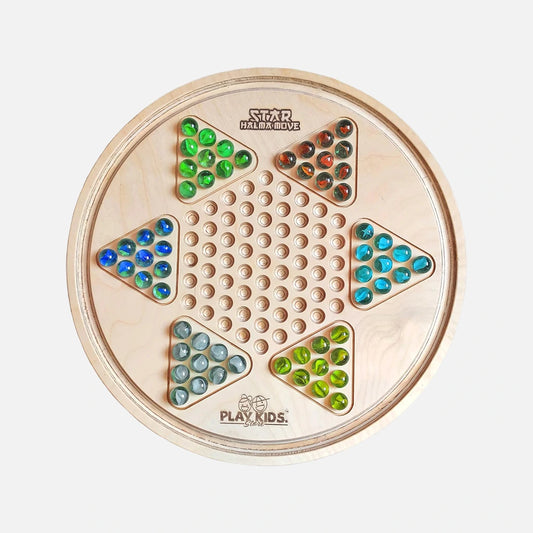Top 10 Essential Moral Values to Teach Your Children
Have you ever caught your child telling a little lie or refusing to share? It might seem small, but these moments shape who they become. Kids don’t just learn morals and values on their own, they need guidance. Without it, they struggle to tell right from wrong, treat others with kindness, or take responsibility for their actions.
Raising a child with strong values and morals isn’t about strict rules. It’s about showing them why honesty, respect, and kindness matter. Simple lessons, like saying “thank you” or helping a friend, build a strong character.
So, how do you teach them the right way? Let’s break down the most important list of morals every child needs to grow into a kind and responsible adult.
Honesty
Children pick up moral values by watching how adults handle tough situations. If they admit to spilling juice or forgetting homework, acknowledge their truthfulness before addressing the mistake. Praise their courage to be honest. Simple moments, like returning lost money or admitting an error, show that telling the truth earns trust and respect.
Respect
Kids learn morals and values like respect by seeing it in action. If they interrupt someone, remind them to listen first. Show them how to speak politely, share, and wait their turn. Simple habits, like saying “please” and “thank you,” teach them that treating others well leads to better friendships and stronger connections.
Responsibility
When children learn to take responsibility, they build strong moral values. It’s not just about doing tasks but understanding the impact of their choices. Teach them to finish their homework or help around the house, and explain why it matters.
If they make a mistake, show them how to admit it and fix the situation. This helps them understand the difference between morals vs values. With each step, they grow more aware of how their actions affect others and start to take ownership of their decisions.
Compassion
A child who shows compassion learns to care for others. Encourage them to help a friend in need. Teach them to comfort a pet or be kind to someone upset. Simple actions like sharing or saying something nice make a big difference.
These acts show children the value of kindness and respect. They start to understand moral values and how their actions affect others. Showing compassion helps them grow into empathetic adults with strong morals and values.
Patience
Patience is an important lesson for children. Teach them to wait their turn and work for what they want. Show them that some things take time. Waiting helps them understand the value of effort.
Explain that hard work brings long-term rewards. These lessons help children learn important moral values. They begin to understand morals and values, like perseverance and self-control.
Gratitude
Gratitude makes children happier and more positive. Teach them to say “thank you” when someone helps. Show them to appreciate what they have. Explain how small acts, like a kind word or favor, deserve thanks.
This helps kids understand moral values like respect and appreciation. When children practice gratitude, they build a more positive outlook and strong morals and values.
Courage
Courage helps children stand up for what’s right. Teach them to speak out against unfairness and bullying. Show them how to resist peer pressure and make their own choices.
Explain that being brave means doing the right thing, even when it’s tough. This builds important moral values, like fairness and honesty. Acting with courage helps kids understand morals and values that guide them.
Self-Discipline
Self-discipline teaches children to make smart choices. Encourage them to manage time and stay on track. Help them follow rules, even when tempted. Show how to focus and avoid distractions. These habits build strong moral values, like responsibility and respect. With practice, kids learn the importance of morals and values in daily life.
Generosity
Generosity shows children the joy of giving. Teach them to share toys, time, and kind words. Encourage giving without expecting anything back. These small acts help kids learn moral values like kindness and compassion. When children give, they understand how morals and values make the world better. Generosity shapes them into caring, thoughtful people.
Fairness
Fairness helps children know what’s right. Teach them to treat everyone equally and follow the rules. Show them how to play fair and share. Explain that fairness means respect and honesty. These lessons help kids understand morals vs values. As they practice fairness, they learn moral values like justice and respect.
FAQs Moral Values to Teach Your Kid
What are basic moral value?
Basic moral values include honesty, kindness, respect, fairness, and responsibility. These principles guide children in making good choices.
What is the most important thing to teach a child?
The most important thing to teach a child is empathy. Teaching them to understand and care for others helps build strong moral values.
What are the moral values taught in school?
Schools often teach moral values like honesty, respect, kindness, responsibility, and fairness. These lessons help shape a child's character.
How can parents teach their children good values?
Parents can teach good values by leading by example. Showing respect, kindness, and responsibility helps children learn and adopt these principles.
How to teach moral values to a child?
To teach moral values, encourage open conversations about right and wrong. Show respect, be patient, and praise positive behaviors. Children learn best by seeing values in action.
Final Thoughts
Teaching moral values takes time and patience. Children learn by watching adults. When they see honesty, respect, and kindness, they follow those examples. Parents and guardians set the stage for strong morals and values. These actions help kids understand morals vs values and shape how they treat others.






Leave a comment
Please note, comments need to be approved before they are published.